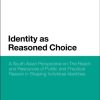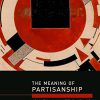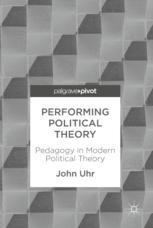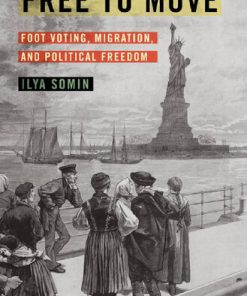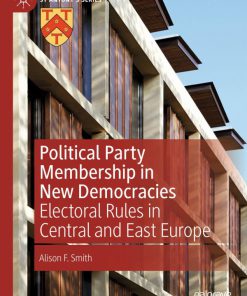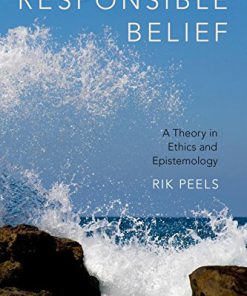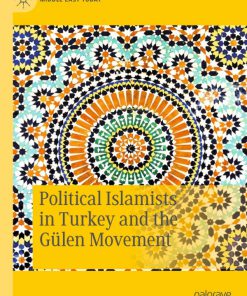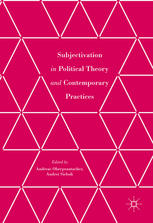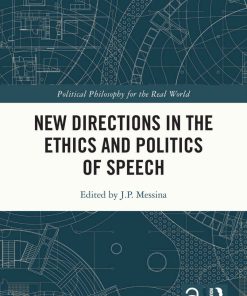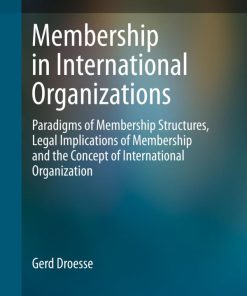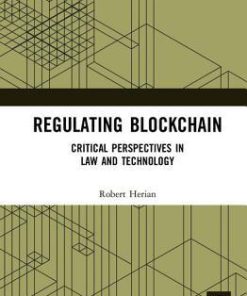Migration in Political Theory The Ethics of Movement and Membership 1st Edition by Sarah Fine, Lea Ypi 0191664311 9780191664311
$50.00 Original price was: $50.00.$25.00Current price is: $25.00.
Migration in Political Theory: The Ethics of Movement and Membership 1st Edition by Sarah Fine, Lea Ypi – Ebook PDF Instant Download/DeliveryISBN: 0191664311, 9780191664311
Full download Migration in Political Theory: The Ethics of Movement and Membership 1st Edition after payment.
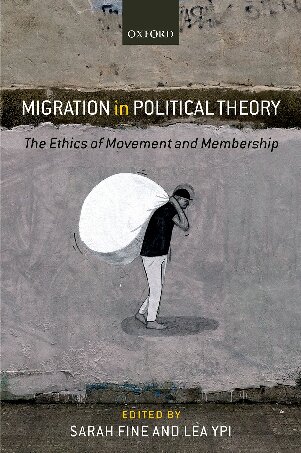
Product details:
ISBN-10 : 0191664311
ISBN-13 : 9780191664311
Author: Sarah Fine, Lea Ypi
Written by an international team of leading political and legal theory scholars whose writings have contributed to shaping the field, Migration in Political Theory presents seminal new work on the ethics of movement and membership. The volume addresses challenging and under-researched themes on the subject of migration. It debates the question of whether we ought to recognize a human right to immigrate, and whether it might be legitimate to restrict emigration. The authors critically examine criteria for selecting would-be migrants, and for acquiring citizenship. They discuss tensions between the claims of immigrants and existing residents, and tackle questions of migrant worker exploitation and responsibility for refugees. The book illustrates the importance of drawing on the tools of political theory to clarify, criticize, and challenge the current terms of the migration debate.
Migration in Political Theory: The Ethics of Movement and Membership 1st Table of contents:
1: The Ethics of Movement and Membership: An Introduction
1.1 Migration and Political Theory
1.2 Outline of the Book
References
Part I: Entry and Exit
2: Is There a Human Right to Immigrate?
2.1 Clarifying the Human Right to Immigrate
2.2 Direct and Instrumental Justificatory Strategies
2.3 The Cantilever Strategy
2.4 Reasons to Control Immigration
2.5 Conclusion
References
3: Immigration as a Human Right
3.1 What is the Human Right to Immigrate?
3.2 The Underlying Interests
3.3 The Inadequacy of an “Adequate´´ Range
3.4 Objections from Culture and Distributive Justice
3.5 The Objection from Scarcity
3.6 Conclusion
References
4: Is There an Unqualified Right to Leave?
4.1 Three Interpretations of the Right to Exit
4.2 Claims to Travel or Relocate
4.3 No Right to Renounce Civic Obligations
4.4 Thoughts on Institutionalization and an Objection
References
5: Freedom of Movement and the Rights to Enter and Exit
5.1 In Defense of the Asymmetric View
5.2 The Right to Enter
5.3 The Right to Exit
5.4 Conclusion
References
Part II: Migration, Equality, and Justice
6: The Special-Obligations Challenge to More Open Borders
6.1 Special Obligations: Additive and Prioritizing
6.2 Residence: Social Relationships and Interactions
6.3 Citizenship: Civic Relationships and Interactions
6.4 Exercising Power: Political Relationships and Interactions
6.5 Conclusion
References
7: Immigration and Discrimination
7.1 Introduction
7.2 Immigration, Race, and Ethnicity
7.3 Immigration Controls and Racism
7.4 The Ethics of Immigration Restrictions
7.5 Discrimination Always Impermissible?
7.6 Why is Discrimination a Problem?
7.7 Conclusion
References
8: Taking Workers as a Class: The Moral Dilemmas of Guestworker Programs
8.1 Introduction: Workers and Guests
8.2 The Dilemmas of Guestworker Programs
8.3 Guestworkers and Domination
8.4 Guestworkers and Egalitarianism
8.5 Guestworkers and Sufficiency
8.6 Taking Workers as a Class
8.7 On Workers and Guests: Some Objections
8.8 Conclusion
References
9: Selecting By Merit: The Brave New World of Stratified Mobility
9.1 The Paradigm Shift: Selecting by Merit, not Origin
9.2 Theoretical and Ethical Conundrums
9.2.1 Fairness to other potential migrants
9.2.2 Fairness to the countries of origin
9.2.3 Fairness to the population of the recruiting nation
9.3 Eroding the Ideal of Equal Citizenship
9.4 Concluding Remarks
References
Part III: Migration and Membership
10: In Defense of Birthright Citizenship
10.1 Birth and Belonging
10.2 The Children of Resident Citizens
10.3 The Children of Emigrant Citizens
10.4 Children of Immigrants
10.5 Birthright Citizenship in a Just World
References
11: The Significance of Territorial Presence and the Rights of Immigrants
11.1 Affiliation
11.2 Fair Play
11.3 Coercion
11.4 Implications for the Rights of Immigrants
11.4.1 Equality: uniform or differential treatment?
11.4.2 Which rights for which territorial insiders?
(i) Claims of sojourners
(ii) Claims of residents
(iii) Claims of citizens
11.5 Conclusion
References
12: Are Refugees Special?
12.1 Prologue: The Morality of Hospitality
12.2 Refugees as Exceptions
12.3 Refugees versus Immigrants
12.4 Institutional Solutions
12.5 In Search of a Solution
12.6 Epilogue: The Morality of Hospitality
References
13: In Loco Civitatis: On the Normative Basis of the Institution of Refugeehood and Responsibilities
13.1 Who is a Refugee?
13.2 Responsibility for Refugees
13.3 Responsibility and Partial Compliance
13.4 Conclusion
People also search for Migration in Political Theory: The Ethics of Movement and Membership 1st:
what are the three theories of migration
what are the 4 theories of migration
migration and politics
migration political effects
political migration factors
Tags: Migration, Political Theory, The Ethics, Movement, Membership, Sarah Fine, Lea Ypi
You may also like…
Politics & Philosophy
Performing Political Theory : Pedagogy in Modern Political Theory 1st Edition John Uhr (Auth.)
Politics & Philosophy - Social Sciences
Free to Move: Foot Voting, Migration, and Political Freedom 1st Edition Ilya Somin
Politics & Philosophy
Politics & Philosophy - Anthropology
Politics & Philosophy - Social Sciences
Political Islamists in Turkey and the Gülen Movement Recep Dogan
Politics & Philosophy
Politics & Philosophy - General & Miscellaneous Philosophy
Jurisprudence & Law
Computers - Networking


